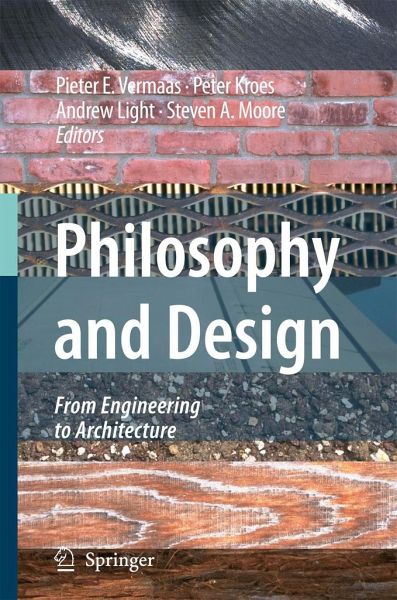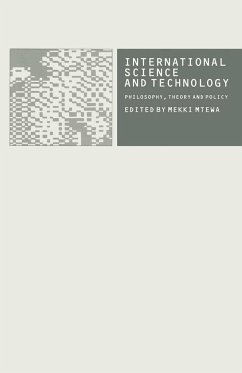
Philosophy and Design
From Engineering to Architecture
Herausgegeben: Vermaas, Pieter E.; Kroes, P.A.; Light, Andrew; Moore, Steven

PAYBACK Punkte
38 °P sammeln!
This volume provides the reader with an integrated overview of state-of-the-art research in philosophy and ethics of design in engineering and architecture. It contains twenty-five essays that focus on engineering designing in its traditional sense, on designing in novel engineering domains, including ICT, genetics, and nanotechnology, designing of socio-technical systems, and on architectural and environmental designing. These essays are preceded by an introductory text structuring the field of philosophy and ethics of design in engineering and architecture as one in which a series of similar...
This volume provides the reader with an integrated overview of state-of-the-art research in philosophy and ethics of design in engineering and architecture. It contains twenty-five essays that focus on engineering designing in its traditional sense, on designing in novel engineering domains, including ICT, genetics, and nanotechnology, designing of socio-technical systems, and on architectural and environmental designing. These essays are preceded by an introductory text structuring the field of philosophy and ethics of design in engineering and architecture as one in which a series of similar philosophical, societal and ethical questions are asked. This volume enables the reader to overcome the traditional separation between engineering designing and architectural designing. The emerging discipline of designing socio-technical systems is shown to form an intermediate between engineering and architecture to which the philosophical and ethical analyses of both domains apply. This volume thus announces a challenging cross-fertilization between the philosophy and ethics of engineering and of architecture that will lay down the integrated ground works for the renewed interests in the importance of design in modern society.














